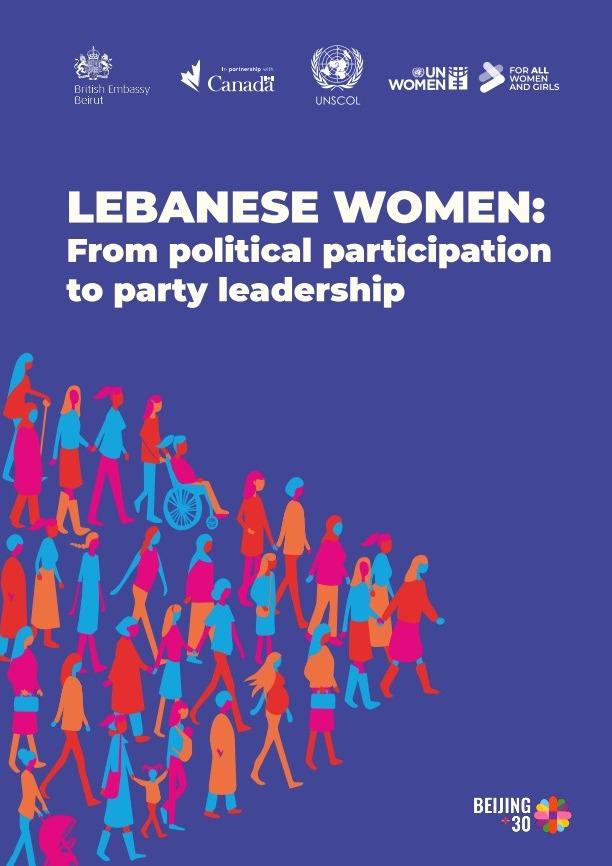United Nations Women (UN Women), United Nations Special Coordinator for Lebanon (UNSCOL) |Oct. 1, 2025
Published in October 2025, “Lebanese Women: From Political Participation to Party Leadership” is the first study of its kind mapping women’s roles across eight major Lebanese political parties. It evaluates women’s participation at different levels—membership, candidacy, and leadership—and highlights the systemic and structural barriers that hinder their advancement. The research was conducted with the support of UN Women, the United Nations Special Coordinator for Lebanon (UNSCOL), and local partners, in close consultation with political parties, women leaders, civil society organizations, and academic experts. As Lebanon prepares for its 2026 parliamentary elections, the report serves as a reference for policymakers, party officials, donors, and advocacy groups working to strengthen gender equality and inclusive governance.
Key Findings & Insights
Women make up roughly 35% of party membership on average (range: ~15-58%), but their presence drastically fades in senior roles: usually fewer than 20% in senior positions, and as little as ~5% in top executive roles.
Women’s candidacies have increased slightly: from about 12.1% in 2018 to 15.7% in 2022. However, only five women from party lists were elected in 2022.
Multiple structural and systemic barriers persist:
• candidate-selection processes are often opaque and controlled by small leadership circles.
• voluntary quotas exist in some parties but are weakly enforced.
• women face limited access to financing and media exposure.
• lack of family-friendly arrangements (e.g. support for balancing caregiving responsibilities) acts as an obstacle.
Legal and policy contexts offer some openings: parties are urged to adopt temporary special measures (quotas), more transparent candidate selection, internal policies to combat harassment, and institutional supports to enable women’s leadership.









